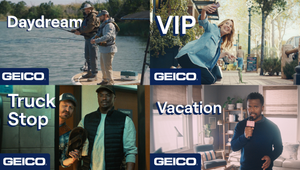
#SayHisName: George Floyd

An open letter
Against a backdrop of uncertainty and struggle created by the pandemic, the past few months have seen a global explosion of hate crimes targeting black people. We have witnessed horrific images of African communities in China being subject to exclusion and violence; black key workers in the UK exposed to high-risk situations and even the physical assault of Belly Mujinga; in the US we have seen the killings of Ahmaud Arbery, Breonna Taylor and the violent death of George Floyd. This comes in the same week as a white woman made a ‘weaponised’ call to the police falsely accusing Christian Cooper of threatening her life in Central Park after he asked her to leash her dog.
While the brutality has brought widespread shock, the direct effect of this injustice and violence on black people cannot be overestimated. The UK Home Office reports that hate crimes have been steadily increasing over the last seven years. In 2018/19, there were 103,379 hate crimes recorded by the police in England and Wales. The majority of these hate crimes were race hate crimes, accounting for around three-quarters of offences (76%; 78,991 offences). This marks an increase of 11 per cent from 2017/18. These were only the reported and recorded crimes: thousands more go unreported. As workers are increasingly expected to operate and have a presence online it is imperative that leaders of industry are aware of the dangers both online and offline.
As a creative sector, what we do and who we represent has a profound impact on culture, yet systemic inequality continues in our industry. UK IPA industry census data, published in April 2020, confirmed minimal gains have been made in diversifying the ethnic make-up of leadership. We have gone backwards at a leadership level, with 4.7% of executives being recorded as BAME in 2019, compared to 5.5% in 2018. It has never been more important to show up as an industry and face up to our own challenges as leaders. We need to drive equity in our organisations, the people we hire, the work we produce and how we engage with clients.
The advertising industry needs to create and maintain inclusive cultures sensitive to inequity and the pain of racism. We ask people across the industry to be conscious of the trauma that many black colleagues and their peers may be experiencing, as they process the news and fallout of the killing of George Floyd and other acts of violence. We call on those in positions of influence to harness the cultural power of advertising to bring authentic prominence to the crisis of racial injustice.
It is not the sole responsibility of our black colleagues to address this imbalance, nor to educate us on the inequities that racism in our industry creates. As inequality is so ingrained within the fabric of society and our sector, this is a problem we need to take action on together to affect change. We can all self-educate. We can all challenge our prejudices and those of others. We are all able to prioritise diversity, equity and inclusion at this critical time.
As Heide Gardner, Senior Vice President, Chief Diversity and Inclusion Officer of Interpublic Group states: “The ultimate test of belonging is not when we support each other on issues we can personally identify with, or what we have in common. The ultimate test of belonging happens when we support each other when our experiences, needs, feelings, and even new ideas are different from the majority of our colleagues, and especially when we differ from those who have power over our careers. Only then will we achieve cultures of genuine belonging where people of colour don’t have to endure the daily calculus of how or if to disclose their feelings, respond to situations or feel implicitly responsible for the comfort of others over their own.”
We ask all industry leaders to be intentional in their support for black talent at this time. We ask our industry to take action and hold ourselves accountable in the following 10 ways:
1. Empower leaders and boards to drive representation and inclusivity by being a core part of the leadership team’s strategic priorities with clear KPIs, actions and objectives, transparently communicated. Deeply understand and monitor the data of your company and understand what goes on within it.
2. Senior leaders must step up, speak out and take action. All leaders need to acknowledge the escalating racism of the last few months in town halls and company wide gatherings, in order to open this conversation in their organisations. Leaders should use their company channels to share links, information, resources and black-driven research.
3. Enable employees to understand their own privileges (especially white privilege) and biases to help them become accountable allies and activists.
4. Call out racism whenever it is encountered. Everyone is responsible for this, from the CEO to all staff across your organisation. Implement an incident management plan or refer to your equality policy for guidance. Building trust creates solidarity in the workforce and provides a psychologically safe space to work. This can allow for issues such as micro-aggressions (subtle acts of discrimination) to be addressed.
5. Create safe and inclusive spaces to have open and frank conversations about racism with everyone in attendance. Use these to promote active advocacy and open dialogue for both black talent and allies.
6. Use existing employee resource groups, such as WPP’s Roots, Publicis Group’s Embrace or for those without networks, assemble ad-hoc forums now such as Publicis Sapient’s ‘Brave Spaces’.
7. ‘Check the make-up of your own circle and seek out different points of view,’ as recommended by WPP U.K. Country Manager & CEO GroupM UK, Karen Blackett OBE.
8. Check-in with black employees - particularly if you are a leader or line manager.
9. Represent at every level and most importantly, on your leadership team: welcome, promote, champion, and celebrate black employees. Commit to amplifying and elevating black talent, working with black-owned businesses and supply chains.
10. Examine your preferred supplier’s list. Ensure your advertising isn’t funding white supremacy or racist content.
We, the signatories of this letter, commit to taking deep, lasting action. Today, we say George Floyd’s name and stand with all black talent in our industry.
Resources:
- Join Culture Heroes
- Sign up to MeFA
- Find out more from Creative Equals
- Sign up to Conscious Advertising Network
- Endorse STOPIT Protocol
- To be a better ally, read this
- Read, learn, share: Anti-Racism Resources for White People
- Find out more from anti-racism charity Show Racism the Red Card
- For more context and understanding watch this or this
- Explore the UK’s Black Cultural Archives
- Discover Black Lives Matter Resources
- Donate to US support groups here
- Read about police brutality here
- Read about London Police Superintendent Leroy Logan MBE here
- Read McKinsey Report - Diversity Wins Report
- Read about and support A Tribe Called Progress
- Understand more with the Black Pound Report
- Sign up to Race in the Workplace
If you are an industry leader and would like to add your signature and support this open letter to our industry, email hello@creativeequals.org.
We have received an overwhelming response to support this before today. We will update the list of signatories on a regular basis.















